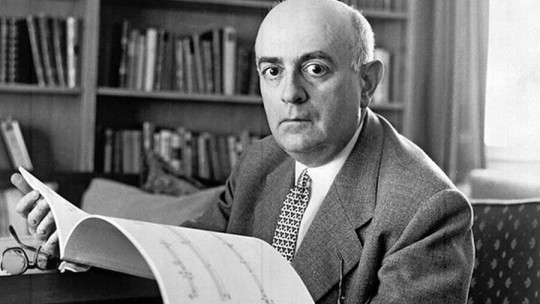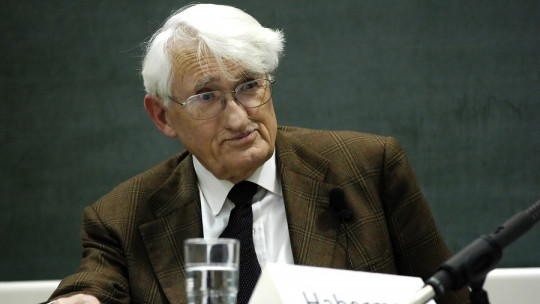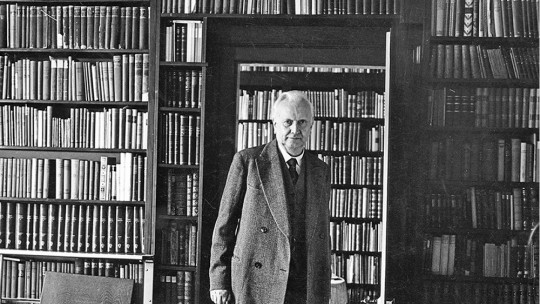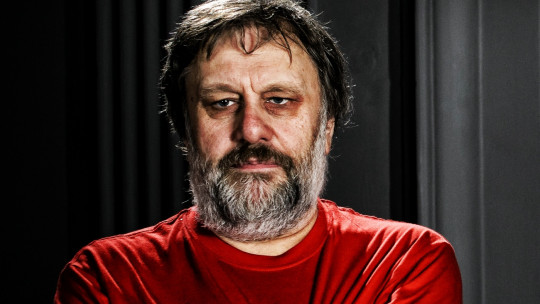Max Horkheimer was a German philosopher, sociologist and psychologist known for having actively participated in the consolidation of the so-called critical theory within the framework of the German Institute for Social Research.
Like some of his contemporaries, among whom we can highlight Theodor Adorno, he had to go into exile when the Nazi party rose to power, an experience that would significantly mark his socio-philosophical criticism.
Next We will see the life of this great thinker through a biography of Max Horkheimer in which we will review his vision of the society of his time and some of his most notable works.
Brief biography of Max Horkheimer
Max Horkheimer’s life takes place in his native Stuttgart, the city of Frankfurt, several European cities that were his refuge fleeing National Socialism, and the United States, which welcomed him both personally and intellectually.
Horkheimer He has been one of the great figures of philosophy, sociology and, in part, German psychology His works are influenced by authors such as Sigmund Freud and Karl Marx, although it would be the latter in particular that would inspire him to analyze late-capitalist society.
Early years
Max Horkheimer He was born in Stuttgart, German Empire, on February 14, 1895 into a wealthy Jewish family Due to pressure from his father, young Max left school at the age of sixteen to work in his father’s factory. In 1916 his manufacturing career ended, and he was drafted to participate in the First World War.
At the end of the conflict, Horkheimer began his studies in Philosophy and Psychology at the University of Munich. His philosophical vocation had the opportunity to manifest itself while traveling in Paris during which he was able to read the works of great thinkers of Western philosophy such as Schopenhauer, Hegel, Marx, Nietzsche and Freud.
Later, he would move to Frankfurt, where he would study under the tutelage of Hans Cornelius. In that city he had the opportunity to meet Theodor Adorno with whom he established a lasting friendship , despite Horkheimer being fourteen years older than him. Their relationship would be culturally and intellectually very intense.
Academic career
In 1925 Max Horkheimer presented his thesis The critique of Kant’s judgment as a mediation between practical and theoretical philosophy, which was advised by Hans Cornelius. After a year, he was appointed “privatdozent”.
In 1930 he would have the honor of being elected director of the German Institute for Social Research This institution would be behind the formation of a new philosophical current, the Frankfurt School, a current critical of the society of its time and a supporter of Marxist currents. Under the direction of Horkheimer, a series of analytical studies would be programmed that would have as their objective the radical critique of late-capitalist society.
After having taken up the chair of social philosophy at the University of Frankfurt, in 1931 Max Horkheimer would start the publication of the magazine Zeitschrift für Sozialforschung , a publication belonging to the Institute and whose edition would be carried out by Horkheimer himself. This magazine advocated a critical-sociological orientation of society, with a philosophical basis.
It should be said that before the publication of this magazine Horkheimer had already published a few essays in Germany, among them his Kritik der instrumentellen Vernunft. His works published between 1926 and 1931 are compiled in the work Dämmerung published in 1934 under the pseudonym Heinrich Regius.
Enhanced by his status as director of the Institute and the Frankfurt School being in full formation, Max Horkheimer’s critical approach was reinforced throughout the 1930s Together with several figures from that same institution, he studied the concept of the European family, giving birth to works such as Study über Autorität und Familie (Studies on Authority and Family).
Exile
With the rise of the Nazis to power, Max Horkheimer lost his venia legendi and, in 1933, the Institute ended up closing due to government pressure. German National Socialism not only frowned upon an institution critical of social movements and with a Marxist air, but also among its members were many Jews, as was the case of Horkheimer and Adorno.
Seeing how the political situation in the country was evolving and fearing for his life, Max Horkheimer was forced into exile He first emigrated to Geneva, Switzerland, then spent a brief stay in Paris and finally ended up in the United States. The Institute for Social Research would build its headquarters in exile at Columbia University in New York.
In 1940 Horkheimer received American citizenship, and moved to Pacific Palisades in Los Angeles, California. While there he would collaborate with Adorno in the writing of Dialectic of Enlightenment. In the following years he published rather little, although he continued to edit a new magazine, this time in English, considered the continuation of Zeitschrift für Sozialforschungand the Studies in Philosophy and Social Science.
While in America, Horkheimer He was also the promoter of a series of investigations that took shape in 1950 in the five volumes of Studies in Prejudice an interesting analysis of the different typologies of authoritarian mentality and repressive behavior, stimulated by the tragic experience of having to flee from fascism and Nazism.
Return to Germany
After the fall of the National Socialist regime and the end of World War II, in 1949 Max Horkheimer returned to Frankfurt and the Institute was refounded within a year The new institution would be greatly enriched by the experiences of several of its returned members, in addition to training new minds, such as Jürgen Habermas, a disciple of Horkheimer and Adorno, among other prominent figures.
Between 1951 and 1953 Horkheimer He was rector of the Johann Wolfgang Goethe University of Frankfurt, an institution where he would continue teaching until his retirement in the mid-60s. Taking advantage of his power as a teacher, he showed his criticism of the capitalist restoration that was being seen in the newly created German Federal Republic which, despite being more democratic, continued to neglect the working people.
Between 1954 and 1959 he alternated his academic life between Europe and America , teaching classes in Frankfurt and also at the University of Chicago. It would be during this time that he would have the privilege of winning the Goethe Prize (1955) and he would be named an honorary citizen of the city of Frankfurt in 1960.
In his last years Max Horkheimer showed a low profile, making few public appearances and handing over the direction of the Institute for Social Research to Theodor Adorno. During the 1970s, Horkheimer experienced the death of his wife, which caused him to retreat even further into solitude. He would die on July 7, 1973 in Nuremberg, West Germany, and would be buried in the Jewish cemetery in Bern, Switzerland.









